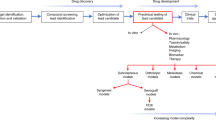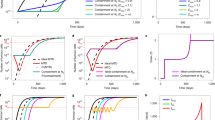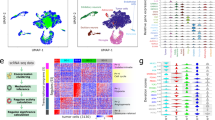Abstract
RECENTLY, Ishibashi et al.1 reported that the subcutaneous autotransplantation of a patient's own tumour slices was effective against the growth of the original tumour and sometimes caused its regression. It seems, however, that experimental evidence on the effectiveness of autotransplantation is not sufficient to try it against human cancer. Attempts were made in this laboratory to examine whether autograft of tumour induced by methylcholanthrene could increase the survival days of the host after appearance of a tumour.
This is a preview of subscription content, access via your institution
Access options
Subscribe to this journal
Receive 51 print issues and online access
$199.00 per year
only $3.90 per issue
Buy this article
- Purchase on SpringerLink
- Instant access to the full article PDF.
USD 39.95
Prices may be subject to local taxes which are calculated during checkout
Similar content being viewed by others
References
Ishibashi, Y., Hattori, T., Fujii, G., Okada, K., Sekiguchi, M., Ashikawa, K., and Motoya, K., Jap. J. Exp. Med., 31, 1 (1961).
Kondo, K., Nozawa, K., Tomita, T., and Ezaki, K., Jikkendobutsu, 6, 107 (1957).
Rhodes, E. L., Nature, 193, 1091 (1962).
Author information
Authors and Affiliations
Rights and permissions
About this article
Cite this article
MATSUYAMA, M., SUZUMORI, K., MAEKAWA, A. et al. Ineffectiveness of Autotransplantation on Growth of the Methylcholanthrene Sarcoma in Rats and Mice. Nature 197, 805 (1963). https://doi.org/10.1038/197805a0
Issue date:
DOI: https://doi.org/10.1038/197805a0



